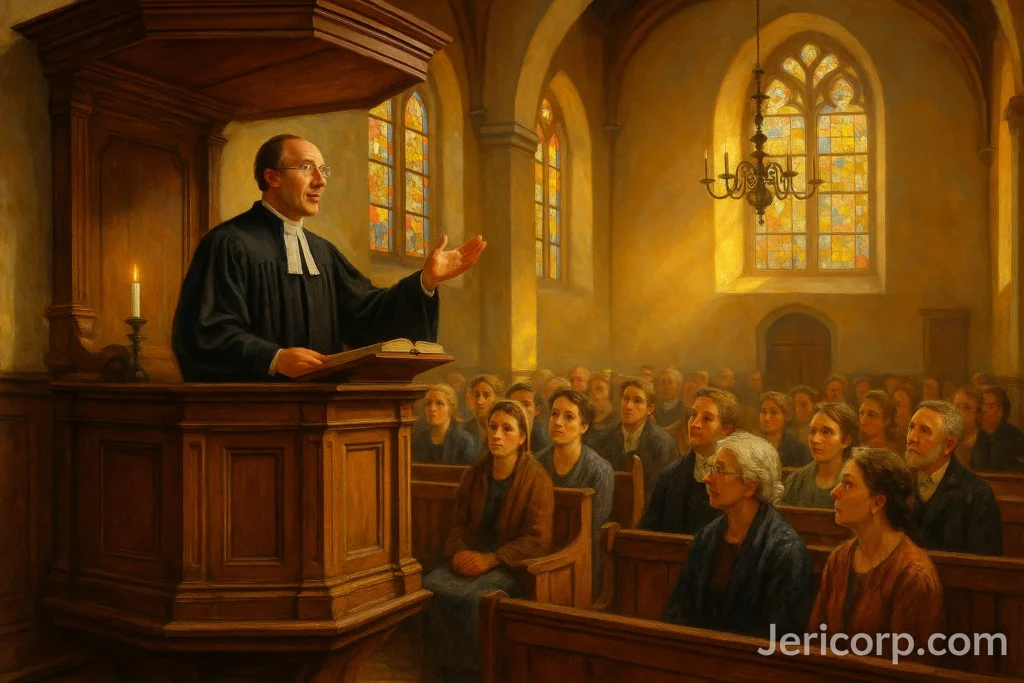Introduction: The Power of Language in Shaping Culture
When we think about language, we often consider words that are common in our everyday lives. However, some terms, although less frequently used, carry significant depth and cultural weight. One such term is kerkt. It may sound unfamiliar to many, but it holds a place in the Dutch language and culture. By delving into its meaning, history, and cultural relevance, we can gain a better understanding of not only the word itself but also the society it comes from.
As someone passionate about linguistics and culture, I have always been fascinated by how even the most obscure terms shape communication and reflect the values of a community. Kerkt is one of those words that, while not part of the average English vocabulary, reveals much about Dutch religious practices and community life. It also demonstrates how a simple word can convey a wealth of meaning that transcends language barriers.
This article is dedicated to unpacking kerkt, exploring its roots, its place in modern Dutch society, and the broader impact of understanding words with deep cultural significance. Through this exploration, we will gain more than just a translation—we’ll uncover the layers that make this word a key to understanding Dutch culture.
What Does ‘Kerkt’ Mean?
At its core, kerkt is a verb in Dutch, meaning “preaches” in English. It is derived from the word kerk, which means “church” in Dutch. The word itself encapsulates the idea of preaching or delivering a sermon within a church setting. As a verb, kerken is the infinitive form, and kerkt is the third-person singular present tense of that verb.
This term is deeply tied to the practice of religious preaching, particularly within the Christian faith. The act of preaching is central to the experience of attending church services, where a minister or priest shares teachings, moral guidance, and spiritual messages with the congregation. In this way, kerkt is not just a word; it symbolizes a key aspect of religious life and community worship.
Interestingly, while kerkt is specific to Dutch, its meaning has equivalents in other languages—such as “preaches” in English, or “predica” in Spanish. These words, though different in sound and structure, all share the common thread of communication in a religious or spiritual context, highlighting the universality of the act of preaching.
Etymology and Linguistic Roots
To fully appreciate the term kerkt, it’s helpful to explore its linguistic and etymological origins. The root word kerk comes from the Greek term kuriakon, meaning “of the Lord” or “belonging to the Lord.” This Greek word was used to refer to buildings dedicated to Christian worship, which eventually evolved into kerk in Dutch, meaning church. From this base, the verb kerken emerged to describe the action of attending church or engaging in religious practices.
The evolution of the word is a testament to how language can change and adapt over time, but still retain its foundational meaning. In fact, the word kerk is found in several languages, often with a similar meaning. In English, the word church shares the same root, demonstrating the interconnectedness of European languages and cultures, particularly in their religious contexts.
As Dutch-speaking communities began to formalize their language and culture, the word kerken became more widely used, especially in religious settings. It became the designated term for the action of preaching or delivering a sermon, encapsulating not just a religious duty but a communal experience. The use of kerkt in this way is a direct reflection of the role religion has played in the development of the Dutch language.
Cultural Significance in Dutch Society
In Dutch-speaking communities, religion and church play an integral role in shaping cultural identity and practices. The act of kerken, or preaching, is not just a religious ritual—it is a cultural cornerstone. For centuries, churches have served as spaces for not only spiritual reflection but also social interaction and community bonding. The act of going to church, whether for a regular service or a special occasion, is deeply embedded in Dutch culture.
The significance of kerkt extends beyond its linguistic meaning. It encapsulates the Dutch tradition of attending church and listening to sermons that reflect the values, struggles, and joys of the community. It’s a way of transmitting wisdom, teachings, and moral guidance from one generation to the next, fostering a sense of continuity in the community.
Moreover, the act of preaching or delivering sermons has a profound impact on how Dutch society approaches religion. In many ways, it shapes moral perspectives, ethical debates, and community engagements. Whether discussing societal issues or offering spiritual comfort, the role of kerkt cannot be overstated in its ability to influence not just religious but also social outcomes.
‘Kerkt’ in Modern Usage
Though the term kerkt may not be part of everyday conversation for most Dutch speakers, it still holds relevance in modern religious and cultural discussions. In contemporary Dutch society, where secularism is on the rise, the act of attending church and listening to sermons may be less common, but it remains a key component of religious practice. Kerkt is still used in both formal and informal contexts to describe the act of preaching, particularly within church services.
In addition, the use of kerkt is often seen in the context of community events, religious festivals, and ceremonies. For example, a pastor might be described as kerkt during special church events, or when he or she delivers a sermon on a particular religious holiday. The word has retained its connection to religious rituals, even as societal attitudes towards religion have evolved over time.
In modern times, kerkt can also be used metaphorically. It is not only used for literal preaching in a church setting but can also describe the act of delivering a passionate, moralizing speech about societal issues. When someone is said to kerken outside of a church, it usually means they are fervently advocating for their beliefs or delivering a lecture on a topic they feel strongly about.
Personal Reflections on Language and Culture
As someone passionate about language and its connection to culture, I find that words like kerkt offer a unique lens through which we can view a society’s values and priorities. Language is more than just a means of communication; it’s a reflection of who we are as individuals and as a community. In the case of kerkt, the word not only represents an action but also encapsulates the reverence and significance attached to religion in Dutch society.
Growing up, I had the opportunity to experience different cultural and religious settings, and I’ve come to realize that language shapes our perceptions and interactions with the world. Words like kerkt carry with them a wealth of history and tradition, and they allow us to connect with the past while navigating the present.
In exploring kerkt, I’ve also gained a deeper appreciation for the role that religious rituals and practices play in shaping community cohesion. Whether in a Dutch church or any other place of worship, the act of gathering, listening, and reflecting is a universal human experience. Language, in this sense, binds us to our cultural and spiritual roots, reminding us of our shared humanity.
Why Understanding Kerkt Matters
Understanding words like kerkt allows us to appreciate the depth and richness of language in all its forms. It opens up a window into Dutch culture and its deeply rooted traditions, offering insight into how language and religion intertwine. The act of preaching, or kerken, is more than just an action—it is a cultural and spiritual endeavor that transcends generations.
By exploring kerkt in detail, we are not just learning a new word; we are engaging with a centuries-old tradition that continues to shape how Dutch people live, think, and communicate. Whether through sermons, community gatherings, or individual reflections, the influence of kerkt is widespread, offering valuable lessons on the importance of tradition, belief, and language.
In a world that is constantly changing, understanding these connections between language and culture becomes even more crucial. It reminds us of the importance of preserving cultural practices and traditions while also embracing new ways of thinking and interacting with each other.
Read More: Döziv: The Complete Guide to Intentional Living and Minimalist Design
Conclusion: Embracing the Depth of Language
In conclusion, kerkt is more than just a Dutch word—it’s a doorway into understanding the culture, values, and beliefs of a society. Whether you’re interested in linguistics, Dutch culture, or religious practices, understanding kerkt offers a deeper perspective on the ways in which language reflects our shared experiences. By exploring this term, we gain not just a translation but an appreciation for the practices and traditions that continue to shape Dutch society today.
Through this exploration, we see how one word can encapsulate centuries of history and meaning. As we continue to navigate the complexities of language, it’s important to remember that words are more than just sounds—they are the lifeblood of culture and communication.
Disclaimer:
“The content in this article is based on the author’s personal experiences and research. It is intended for informational purposes only and should not be considered as professional advice. Always do your own research before making decisions based on the information shared.”





